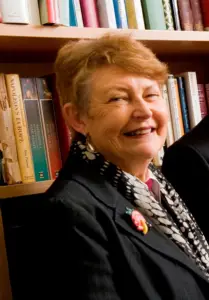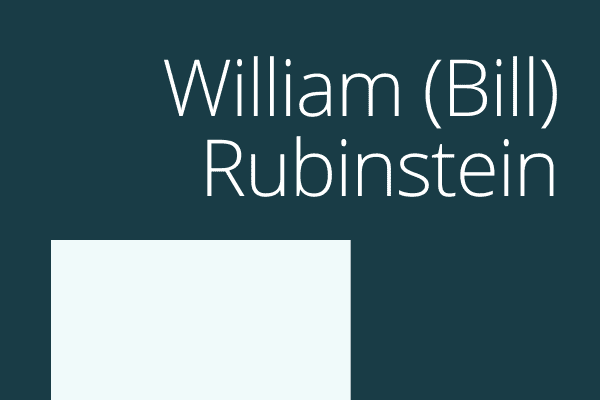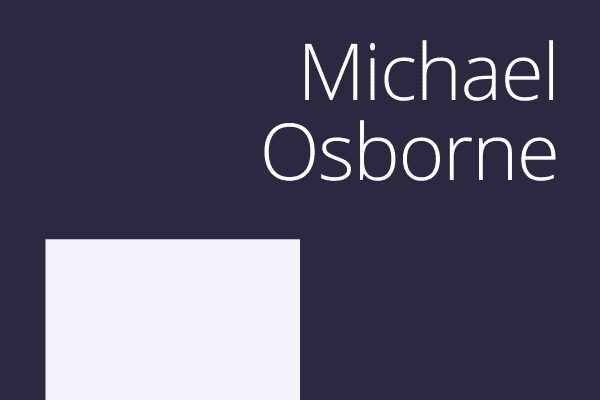 Renowned historian Lyndall Ryan, AM FAHA (since 2018), died at Lake Macquarie Private Hospital at Gateshead, NSW, on April 30, 2024, aged 81 years. As Emerita Professor at the University of Newcastle, Newcastle, Australia, Lyndall was a highly active scholar at the time of her passing, and her loss is one that is keenly felt not only by her many friends and relatives, but also by the wider community of historians and other humanities scholars. Today, Lyndall is most widely recognised for her work on colonial frontier massacres in Australia, culminating in the acclaimed ‘Massacre Map,’ which has had a profound impact on the nation’s understanding of our collective past. However, Lyndall’s contribution to historical scholarship has been sustained over a much longer time. During an academic career spanning six decades, Lyndall helped re-shape the terrain of Australian historiography in women’s studies and Indigenous history.
Renowned historian Lyndall Ryan, AM FAHA (since 2018), died at Lake Macquarie Private Hospital at Gateshead, NSW, on April 30, 2024, aged 81 years. As Emerita Professor at the University of Newcastle, Newcastle, Australia, Lyndall was a highly active scholar at the time of her passing, and her loss is one that is keenly felt not only by her many friends and relatives, but also by the wider community of historians and other humanities scholars. Today, Lyndall is most widely recognised for her work on colonial frontier massacres in Australia, culminating in the acclaimed ‘Massacre Map,’ which has had a profound impact on the nation’s understanding of our collective past. However, Lyndall’s contribution to historical scholarship has been sustained over a much longer time. During an academic career spanning six decades, Lyndall helped re-shape the terrain of Australian historiography in women’s studies and Indigenous history.
Lyndall was born to Jack and Edna Ryan (nee Nelson) in Sydney in April 1943. She won a Commonwealth Scholarship to Sydney University, which she took up in 1961, completing a BA Dip.Ed, majoring in History and Government. Lyndall taught English and History at Campbelltown High School in 1965. She began working as research assistant for the eminent historian Charles Manning Clark, AC FAHA, at ANU, in 1966. Working on the archives documenting the ‘Black War’ in colonial Tasmania, Lyndall’s desire to pursue deeper historical research was lit. ‘This really whet my appetite,’ she explained. Lyndall completed an MA Qual History at ANU in 1969, and after a brief stint as a Tutor in Education at the University of Papua New Guinea and then as a high school teacher at Jannali Girls’ High in Sydney, she embarked on her PhD studies at Macquarie University in 1970.
Lyndall returned to the colonial Tasmanian archives under the supervision of Macquarie historian Mervyn Hartwig (who had completed an honours thesis at Adelaide on the Coniston massacre in 1960). Her PhD, which she was awarded in 1975 under the title, ‘Aborigines in Tasmania, 1800-1974 and their problems with the Europeans,’ contested the then orthodox narrative of Tasmanian Aboriginal extinction. Like her first academic article – ‘Outcasts in White Tasmania’, a paper referencing the work of sociologist Charles Rowley and delivered at a conference on Aboriginal resistance which she published in 1972, in the leading Australian anthropology journal Mankind – Lyndall’s thesis traced the ongoing struggle of Cape Barren Islanders to maintain and rebuild their community lives and Indigenous identity. Lyndall focused particularly on the role of the sealers of the Bass Strait in the survival and resistance of the Tasmanian Aborigines, overturning the long-held representation of these men as scapegoats for colonial violence and insisting upon the agency, as opposed to victimhood, of the Aboriginal women they partnered with, and their descendants. Lyndall’s approach was influenced by and supported the rising tide of Aboriginal activism in the period, and positioned her at the forefront of the exciting new field of ‘revisionist’ Aboriginal historiography, that was overturning ‘the Great Australian Silence’. In 1977 her second peer-reviewed article, on the Bass Strait community and their ‘Struggle for Recognition,’ appeared in the inaugural issue of the Aboriginal History journal, recently launched at ANU after two years of planning. When her thesis was published in 1981 (not by an Australian publisher at first, notably, but rather by the University of British Columbia Press – a UQP edition appeared soon after), it received immediate attention for the boldness of its declarations of Tasmanian survival, and its reference to the still-controversial 1978 documentary about the purported Last Tasmanian (the woman ‘Truganini’).
By focusing her attention on Aboriginal women, including but not only Truganini (there are multiple spellings of her name, and Lyndall herself used various alternatives, including three different spellings in the three biographical entries she wrote on this iconic figure), Lyndall set out a new path in a long-neglected field, of Aboriginal women’s histories. She reflected on this aspect of her work in a 1986 article in Australian Feminist Studies, explaining that she had been influenced by the work of feminist women anthropologists Phyllis Kaberry, Isobel White and Diane Barwick, all of whom had taken issue with the standard masculine portrayal of Indigenous women as pathetic drudges. She was also influenced of course on a personal as well as an intellectual level by her own mother, whom Lyndall described as a ‘feminist icon’. Edna Ryan, a Labor Party stalwart who’d cut her teeth in the communist Militant Women’s Movement of the 1920s, was Fairfield Council Mayor when Lyndall was a girl. During the 1970s, when Lyndall was a postgraduate student, her mother was a driving force in the Women’s Electoral Lobby and the Equal Pay movement. Edna Ryan also co-authored a history of Australian women workers, Gentle Invaders, in 1975 (later, in 1984, Edna would write a history of women and arbitration in NSW). Lyndall herself had joined the first Sydney Women’s Liberation Group during her postgraduate studies and forged enduring friendships with other feminist activist scholars, helping establish the Leichhardt Women’s Health Centre in Sydney and co-editing the feminist journal Refractory Girl.
Lyndall might well have had an entirely different career as a ‘femocrat’, had things worked out differently in Australian politics. At the end of her studies in 1974 she joined the Australian Public Service as a Policy Analyst, working in the new Office of Women’s Affairs within the Department of the Prime Minister and Cabinet. When the Whitlam government fell the following year, however, Lyndall resigned from the Public Service and turned to an academic career instead, at a time when the universities were booming. She first worked as a Tutor in the History department at ANU, before she took a position as a lecturer in Griffith University’s School of Humanities in Brisbane in 1977.
Here, Lyndall established and convened radical new interdisciplinary courses in Women’s Studies and Australian Studies. Griffith University’s principal lecturer in Australian history during its first decade of operation, Lyndall continued to publish work in Aboriginal history, and also wrote on convict women and Australian women’s historiography more generally. Among the students she taught and supervised was Robert Henry (Harry) Gentle who would, in 2015, leave a generous bequest to the university to form a digital resource centre dedicated to the study of early nineteenth century Australia, the Harry Gentle Resource Centre. Lyndall also became active in Queensland’s feminist movement of the time and her leading advocacy for women’s rights led to her appointment in 1984 as chair of the Queensland Committee on Discrimination in Occupation.
In 1986, an exciting new opportunity arose when Lyndall appointed as Reader and Foundation Head of the new Women’s Studies department at Flinders University in South Australia. Moving to Adelaide, Lyndall set up the new unit in School of Social Sciences, home of the History department, distancing it from a student-initiated course that had been run through the philosophy department between 1973 to 1983. With feminist literary scholar Susan Sheridan FAHA, who was appointed the following year, Lyndall designed new women’s studies topics and created a coursework Masters program that was co-taught with Adelaide University colleagues. ‘She was,’ Susan recalls, ‘a great enabler of others’ work.’ Lyndall was then the most senior appointment in Women’s Studies in Australia and played a key role in strengthening the area as an academic discipline, including initiating the formation of the Women’s and Gender Studies Association. She supervised numbers of students who went on to be influential scholars themselves, including Murri historian and Reconciliation leader Jackie Huggins AM FAHA, who came to Flinders expressly to study with Lyndall. Lyndall continued her feminist activism in Adelaide, including being spokesperson for the Coalition for Women’s Right to Choose, and she integrated her scholarship and her activism with an early Australian Research Council grant (1990) with Margie Ripper and Barbara Buttfield for a study of women’s experiences seeking pregnancy terminations in three Australian states. That led to a landmark study, We Women Decide (1994), that argued that abortion was a health issue, not a moral issue. A second ARC grant followed that year, with Susan Sheridan, to work on a social and cultural history of the Australian Women’s Weekly magazine.
As a much valued and influential member of the vibrant community of feminist scholars across three universities in the city of Adelaide, Lyndall’s departure from Flinders in 1998 to take up another foundational position, this time at the University of Newcastle in NSW, was keenly felt. As Foundation Professor of Australian Studies, Lyndall was now based at the university’s Ourimbah campus on the Central Coast of NSW. She established a BA major program in Australian Studies, supervised postgraduate students in Humanities and History, and would serve for a period as a highly respected Head of the School of Humanities. Lyndall was now working on a feminist life-history of her formidable mother (deceased 1997), and began publishing some work on the relationship between mothers and daughters in biography.
It was, however, around this time that Lyndall’s work on Tasmania, alongside work by other fellow revisionist historians like Henry Reynolds FAHA FASSA, was singled out for public attack in the so-called History Wars. Waged by journalists and politicians who opposed the growing Reconciliation movement in the country, their target was not that aspect of her Aboriginal Tasmanians (republished in 1996) that had been most controversial at the time (the level of Aboriginal resistance), but rather on her documentation in that work of frontier violence in the colonial period, particularly on the ’body count’. Lyndall entered the fray in defence of her work, responding directly to her critics in a couple of publications at the time, and returning her attention to the history of Tasmanian massacres with a focus now on the societal remembering of such violence. Being under fire was an experience that she found, in her own words, ‘traumatizing’. Nevertheless, it galvanised her commitment to engaged historical scholarship that accounted for the full destructive impact of colonisation on Aboriginal Australians. From 2005, when Lyndall retired (becoming a Conjoint Professor at Newcastle), she would devote herself to this pursuit.
‘I had always wanted to be a historian,’ Lyndall reflected in 2022. ‘Yet, apart from teaching history for a year as a secondary school teacher, and as a tutor for a year in the History Department at ANU, I only became part of a university history discipline at the very end of my academic career.’ Holding an Honorary Research Professorship with the University of Tasmania’s School of History and Classics between 2005 and 2007, followed by a Visiting Fellowship with Yale University in its Genocide Studies Program, Lyndall was now able to pursue her research wholeheartedly. In 2012 she published a fully revised and updated edition of Aboriginal Tasmanians and, coming back out of retirement now to fractional employment, became a Research Professor with the University of Newcastle’s new Centre for the History of Violence. While publishing articles, supervising postgraduate work, and securing further grants on the questions of genocide and massacres in Australia’s colonial history and British empire and settler worlds more generally, Lyndall conceived the idea of an interactive online map detailing the recorded sites of frontier massacres in Australia. Ultimately, with a team of researchers, Lyndall would oversee and be the face of the award-winning, ‘nation-defining’ project Colonial Frontier Massacres in Australia, 1788-1930, which produced an online map unveiled over four stages between 2017 and 2022. Described by historian Mark McKenna as ‘a cartographic memorial, a shimmering testimonial to a moral truth which is at once overwhelming and undeniable,’ Lyndall’s ‘Massacre Map’ was a forthright rebuttal to those who sought to deny the history of colonial violence against Aboriginal people.
The public impact of the map has been undeniable, especially after the Guardian magazine took it up for their project ‘The Killing Times Map’. The reach of her research lent considerable weight to her recognition as a historical scholar of sustained excellence. Lyndall was elected a Fellow of the Australian Academy of Humanities in 2018 and awarded the History Council of NSW’s Annual History Citation for her contributions to women’s and Indigenous history, the same year. In 2019, she was made a Member of the Order of Australia in recognition of her ‘significant service to higher education, particularly to Indigenous history and women’s studies’, and in 2022, Lyndall received the inaugural Lifetime Achievement Award from the Australian Historical Association.
Lyndall formally retired from the University of Newcastle in 2020. Neither the pandemic nor her second retirement slowed her down, nor even the cancer that followed, and which she successfully held at bay until so recently. Throughout these tribulations and right up almost to the very moment of her passing, Lyndall continued to research and write. Nancy Cushing and I launched her co-edited book (with Angela Wanhalla and Camille Nurka) Aftermaths: Colonialism, Violence and Memory in Australia, New Zealand and the Pacific at Gleebooks in Sydney at the end of 2023; her chapter in a forthcoming book edited by Alan Lester, The Truth of Empire, is in proofs; and at the start of this year, Lyndall was co-authoring a book manuscript with Philip Dwyer, Violent Empires: Killing and Colonialism in the Age of Revolution, 1780-1820 (forthcoming). The work that Lyndall was still doing with the online massacre map at Newcastle is to be continued by her team at the University of Newcastle, and her legacy will continue to help Australians come to terms with our past, for many years to come.
To her many colleagues and friends, Lyndall was an indefatigable, extraordinary, and inspirational woman. Warm, generous, smart, ethical, and funny, she was always reliably great company, and always 100% committed. Lyndall was, in so many ways, a woman larger than life, and in losing her, our community of scholars is bereft, yet made all the better from having had her with us.
Victoria K Haskins FAHA FRSN
The University of Newcastle



